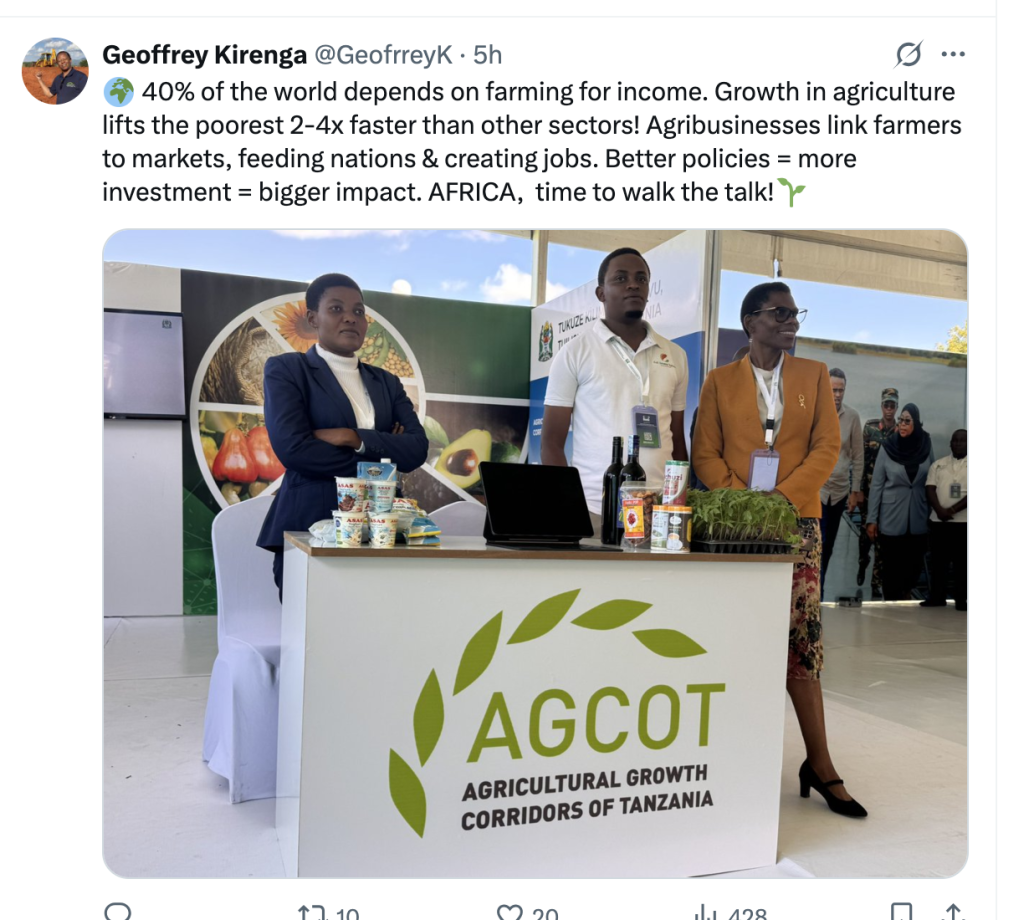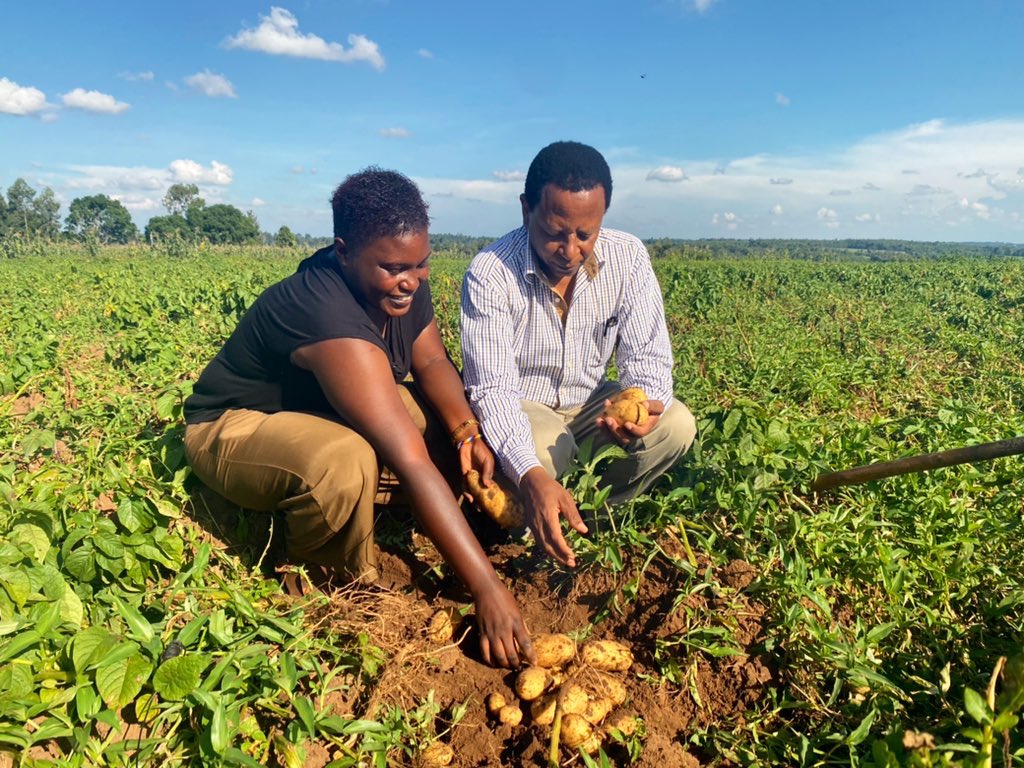In a world where economic disparities continue widening, agriculture is a powerful force for uplifting the most vulnerable communities. Geoffrey Kirenga, CEO of the Agricultural Growth Corridors of Tanzania (AGCOT) Centre, recently issued a compelling message on X (formerly Twitter):
“40% of the world depends on farming for income. Growth in agriculture lifts the poorest 2–4x faster than other sectors!”
His message resounds as a clarion call for Africa to unlock the immense, yet largely underutilized, potential of its agricultural sector—to drive economic transformation, reduce poverty, and secure a more prosperous future for all.
Kirenga’s statement is grounded in a sobering truth: for nearly half the global population, farming is more than just a livelihood—it is the foundation of survival. In Africa, where agriculture employs over 60% of the workforce in many countries, the sector forms the bedrock of national economies. Yet, systemic barriers—limited market access, poor infrastructure, and chronic underinvestment—continue to stunt its potential. Kirenga’s post draws attention to a critical insight: growth in agriculture delivers a disproportionately high impact on poverty reduction, lifting the poorest communities two to four times faster than growth in other sectors. This multiplier effect positions agriculture as one of the most effective pathways to inclusive economic development.
At the heart of Kirenga’s vision is the catalytic role of agribusinesses in transforming agriculture from subsistence to success.
“Agribusinesses link farmers to markets, feed nations & create jobs,” he affirms. This is a vital intervention on a continent where smallholder farmers, many operating on less than two hectares of land, dominate the landscape. In Tanzania, for example, over 70% of the population relies on small-scale farming. But without dependable markets, these farmers remain trapped in poverty cycles—unable to sell at fair prices, scale operations, or invest in productivity.
Agribusinesses offer a solution. By providing infrastructure, technical expertise, and stable market linkages, they help farmers improve yields, enhance product quality, and access broader markets—domestically and internationally. The result: higher farmer incomes, stronger food systems, and more resilient local economies.
Kirenga also underscores agribusiness as a strategic lever for addressing Africa’s pressing youth unemployment crisis. With the continent’s population projected to double by 2050—half of which will be under the age of 25—the need for sustainable employment opportunities is urgent. Supported by modern agribusiness models, agriculture can absorb millions of youth across entire value chains—from production and processing to logistics, branding, and export. Through entrepreneurship and innovation, rural Africa can evolve into vibrant economic zones, reducing urban drift and fostering more balanced national development.
Yet this transformation won’t happen without enabling policy frameworks. Kirenga is unequivocal:
“Better policies = more investment = bigger impact.”
This simple but powerful formula emphasises the need for smart, supportive governance. Governments must facilitate access to affordable finance, expand rural infrastructure, incentivize technology adoption, and de-risk private investment in agriculture. Tanzania’s own experience, through initiatives like the Southern Agricultural Growth Corridor of Tanzania (SAGCOT)—which AGCOT now builds upon—proves that public-private partnerships can drive systemic change. By aligning policy ambition with private sector innovation, Tanzania has attracted investment, improved productivity, and demonstrated scalable models for agricultural transformation.
Kirenga’s rallying cry—“AFRICA, time to walk the talk! ”—echoes the collective impatience of many stakeholders across the continent. Africa boasts 60% of the world’s uncultivated arable land, a wealth of water resources, and a rapidly growing, youthful workforce. Yet the continent remains a net food importer, vulnerable to global price shocks and food insecurity. With global demand for food expected to rise by 50% by 2050, Africa must act now to position itself as a global breadbasket—not just for its own people, but for the world.
As CEO of the AGCOT Centre, Kirenga is not merely advocating change—he is architecting it. AGCOT’s mission to establish and scale agricultural growth corridors aligns squarely with its vision for a transformed, inclusive sector. Through strategic facilitation, AGCOT brings together farmers, agribusinesses, government, and financiers—ensuring that agricultural development is coordinated, efficient, and impactful. Its corridor approach addresses systemic bottlenecks while maximizing value chain potential—serving as a blueprint that other African countries can adapt.
In a time marked by climate shocks, food insecurity, and inequality, Kirenga’s message cuts through the noise: agriculture is Africa’s most potent weapon against poverty and underdevelopment. But the window of opportunity is narrow. Leaders must act—through tangible policy reforms, targeted investments, and bold partnerships. The cost of inaction is too high. The rewards of action, however, are transformative.
Africa’s agricultural revolution is not a dream deferred. It is a mission in motion, powered by agribusiness, and driven by the continent’s determination to shape its destiny. The time to walk the talk is now. Africa must rise, plant, invest, and harvest its future.

